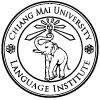2010-04-16 - Eileen Edwards
Why Chiang Mai – and what can I do when I get here?
So you’ve had enough for now of Western living expenses, Western politicians, Western crime waves, Western wars, and Western weather -- unless you’re fortunate enough to live in California, in which case, please disregard the weather! Maybe you’re a graduate student at a Western university and need to go somewhere different and do something useful during your break. Or there’s always been a gypsy in your soul and you’ve a compulsion to move on every few years.
But, why Chiang Mai? Maybe you’ve visited previously and want to see more of the fascinating Lanna North of Thailand, or you’ve arrived almost by accident and want to stay. Whatever the reason, living here is what you feel you should do, for a while or even for ever! You may even realise that a break here, however long, won’t prepare you for the major adjustments that come with residence --- or at least as permanent a residence as current and ever-changing visa rules will allow.
So you surf the internet at all hours of the day and night and scan numerous websites for information about visas, housing, weather, lifestyle, shipping, shopping, living expenses, hobbies, sports, clubs, and the language - plus TEFL courses if you feel a compulsion to teach English - and the important stuff like bars, restaurants and nightlife.
Once you’ve discarded the out –of-date and the obvious overkill and spin,
your next step may have been a “ research trip”, during which, having explored the joys of the Night Market, several Wats, the Elephant Camp, several Thai restaurants, rather more farang restaurants, and three pubs, you met Westerners who actually live here! First-hand information is useful, but one subject may not have been up for discussion - ‘how can I go about being of use while I’m here?’
Even the most casual visitors to Chiang Mai and the north of Thailand usually become aware of the ‘in your face’ needs of many here, particularly in the rural and mountainous areas. Orphanages, ethnic minority schools, infrastructure for micro-enterprise and sustainable development, micro-finance development, care for animals, etc, - all the skills incomers have learned during their lives can make a real difference here, and if you love to teach, you’ll be more than welcome.
Chiang Mai University (CMU), located here in the city, is one of the most highly regarded universities in Thailand, with its Language Institute geared up to provide not just tuition in many languages, including Thai, to students of all ages and nationalities, but also several answers to the ‘how can I help?’ question. The CMU Language Institute’s TEFL (Teaching English as a Foreign Language) course is quite simply the best in town, (no matter what you may read online in competing organisations’ web pages! ), and their Cultural Exchange Programme provides an opportunity to give and receive where it’s most needed.
Many government schools in the city and region cannot provide good native English teachers as government grants are too small. As the international language, English is essential for the development of an international perspective in today’s young people, which, in turn, will aid the country’s development. At present this is only successfully provided at the high-cost International Schools in the city, with rural children and those from poor families totally excluded.
The Chiang Mai University Language Institute’s new Cultural Exchange Programme is a great follow-on after a successful TEFL course, providing opportunities not only in teaching but in sharing your abilities in many diverse fields with those who need them most. However obscure your speciality, and however long it takes, their development team will find a suitable placement and support you with a one-year renewable Education Visa and practical assistance for as long as you are in the programme.
If you decide to stay for a while, your next challenge may well be learning the Thai language, considered to be the third most difficult language in the world after Chinese and Japanese. Again, the CMU Language Institute’s Thai courses, ranging from a one month ‘essentials’ course to a full year of study including reading and writing, are the answer, and also include the all-important Education Visa. The teachers make sure the process is fun, and the classrooms are filled with laughter, learning games and the practical information necessary to make sense of the language.
For more information on the options offered by Chiang Mai University Language Institute, please contact the relevant department through this website, either by email or by phone.
Subscribe to:
Post Comments (Atom)

No comments:
Post a Comment